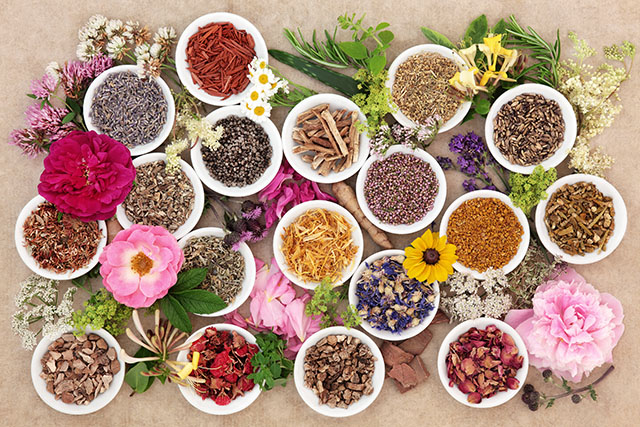Ayurveda in the West
Whole Body Healing
Ayurveda is an ancient system of medicine from India that has been around for over 5,000 years. In Sanskrit, the word "Ayur" means life, and "Veda" means knowledge. Ayurveda is the knowledge or science of life. It is a holistic system of medicine that takes into account the mind, body, and spirit.
It is based on the belief that good health is achieved when the mind, body, and spirit are in harmony with each other. This is accomplished by following a healthy lifestyle, having a balanced diet, and using herbal remedies. Ayurveda may be used preventatively and to promote wellness. It is also effective in helping with many chronic conditions.
In my latest podcast episode, I had the pleasure of talking with Gauri Junnarkar about the benefits of Ayurveda. Gauri is an expert in the field and has experienced firsthand the connection between Ayurveda and mental health. Gauri shared some fascinating insights about how Ayurveda can help to improve mental health. For example, she explained how certain practices can help to soothe the nervous system and reduce stress levels.
One of the key tenets of Ayurveda is the importance of good nutrition.
We also talked about the gut-brain connection and how our gut health can impact our mental health. In addition, Gauri also mentioned self-massage as one of the techniques she uses.
“The great thing about Ayurveda is that its treatments always yield side benefits, not side effects.”
- Shubhra Krishan
My own experience with Ayurveda happened a few years ago after breaking my foot. My yoga teacher suggested I try Marma Therapy. Marma Therapy is a form of self-massage that uses pressure points along the body to relieve pain. It was incredibly effective in reducing and managing the chronic pain I experience on a daily basis.
History of Ayurveda
The history of Ayurveda dates back thousands of years, making it one of the oldest medicinal systems in the world. The earliest texts were written in Sanskrit, but they were later translated into other languages such as Tamil and English. It is mentioned in sacred Hindu texts, such as the Rig Veda and the Atharva Veda.
According to Ayurvedic principles, each person has a unique constitution, or Prakriti, which determines their physical and psychological characteristics. Imbalance in the Prakriti can lead to disease. Ayurvedic practitioners use a variety of techniques to restore balance, including diet, exercise, massage, and meditation.

Today, there are numerous Ayurvedic schools and hospitals in India, and the practice has been gaining popularity in Western countries as well. Although it is still considered an alternative form of medicine, it is increasingly being recognized for its effectiveness in helping with a variety of conditions.
Ayurveda remained an important part of Indian culture throughout the millennia, and it continues to be practiced today by millions of people around the world. And it is often used in conjunction with other forms of medicine, such as modern Western medicine.
Ayurveda and Mental Health
Recent studies have shown that Ayurveda can be effective in helping with mental distress, including anxiety and depression. There are many connections between Ayurveda and mental health. One of the most important ones, in my opinion, is the mind-body connection.
In Ayurveda, the mind and body are inextricably connected through the nervous system. The nervous system is responsible for sending messages between the brain and the body. When there is an imbalance in the mind, it can cause an imbalance in the body. Conversely, when there is an imbalance in the body, it can cause an imbalance in the mind.

Ayurveda also believes that good gut health is essential for good mental health. The gut-brain axis is a complex communication network between the gastrointestinal tract and the brain. The gut-brain axis plays a role in mood, behavior, and cognition. Research has shown that there is a bidirectional relationship between gut health and mental health. This means that gut issues can cause mental distress and vice versa.
Ayurveda and Gut Issues
Ayurveda believes that gut health is essential for overall health and well-being. In fact, practitioners believe that the gut is the root of all diseases. Imbalances in gut flora can lead to a wide range of problems, including indigestion, allergies, and even mental distress.
Ayurveda can help restore balance in the gut by providing nutrients that are essential for gut health, such as probiotics and prebiotics. In addition, it can help to reduce stress and promote relaxation.

This is important because when we are stressed, our bodies produce cortisol, which can damage the lining of the gut. By reducing stress and promoting relaxation, Ayurveda can help protect the gut and improve overall mental health.
Herbal Remedies for Mental Distress
In addition to yoga, nutrition, and self-massage, Ayurveda also incorporates herbal remedies. These have been used for centuries to help with mental distress such as anxiety and depression. Some of the more well-known herbs include Ashwagandha, Brahmi, Shankhapushpi, Ginkgo Biloba, Gotu Kola, Lavender, Lemon balm, Passionflower, Skullcap, St. John's Wort, and Turmeric.
These herbs work by modulating neurotransmitters such as GABA, serotonin, dopamine, and norepinephrine. They also have anti-inflammatory properties, which can help to reduce inflammation in the brain. Inflammation has also been linked to mental distress, such as anxiety and depression.

It is important to note here that you should never just experiment with Ayurveda and herbs. Please ensure you work with a trained expert for your safety and wellbeing. They can advise you on what is safe and can also ensure that herbs and remedies they use are free from heavy metals and other toxins. Contamination through lead and mercury is common in Ayurvedic remedies and most remedies have not been tested and approved by the FDA.
It is also important to consider that mental distress is not just a chemical imbalance, so taking Ayurveda’s whole body approach could be helpful.
The Takeaway
Ayurveda is a holistic system of medicine that takes into account the mind, body, and spirit. It is based on the belief that good health is achieved when these three aspects are in harmony with each other. It has been shown to be effective in helping with anxiety and depression through restoring balance in the body using techniques like massage, meditation, and yoga.
The gut-brain connection refers to the fact that the gut and brain communicate with each other through a network of nerves called the vagus nerve. This communication starts in the gut and travels up to the brain. When this balance is disturbed, it can lead to inflammation in the gut, which has been linked to depression and anxiety. Some studies have even found that probiotics, live microorganisms that promote gut health, can be effective in supporting optimal wellbeing.

There are many connections between Ayurveda and mental health.
For example, Ayurveda believes that good gut health is essential for good mental health. This is because there is a bidirectional relationship between gut health and mental health. There are also many herbal remedies that have been used for centuries to treat mental distress.
Gut health is an important part of overall health, and Ayurveda can be a great way to help with gut issues. By taking steps to improve gut health, you can also improve your mental health and overall sense of wellbeing.
If you’re struggling with gut health or are experiencing mental distress, Ayurveda could be a gentle and effective option to support your body, mind, and spirit.
Sources
Ayurveda. Johns Hopkins Medicine. (2019, December 2). Retrieved September 13, 2022, from https://www.hopkinsmedicine.org/health/wellness-and-prevention/ayurveda
Cleveland Clinic. (2022, June 10). What is Ayurveda and does it work? Retrieved September 13, 2022, from https://health.clevelandclinic.org/what-is-ayurveda/
Lad, V. (2021, August 24). Ayurveda: A brief introduction and guide. The Ayurvedic Institute. Retrieved September 13, 2022, from https://www.ayurveda.com/ayurveda-a-brief-introduction-and-guide/
https://thejornipodcast.com/episode-14-nutrition-ayurveda-with-gauri-junnarkar
